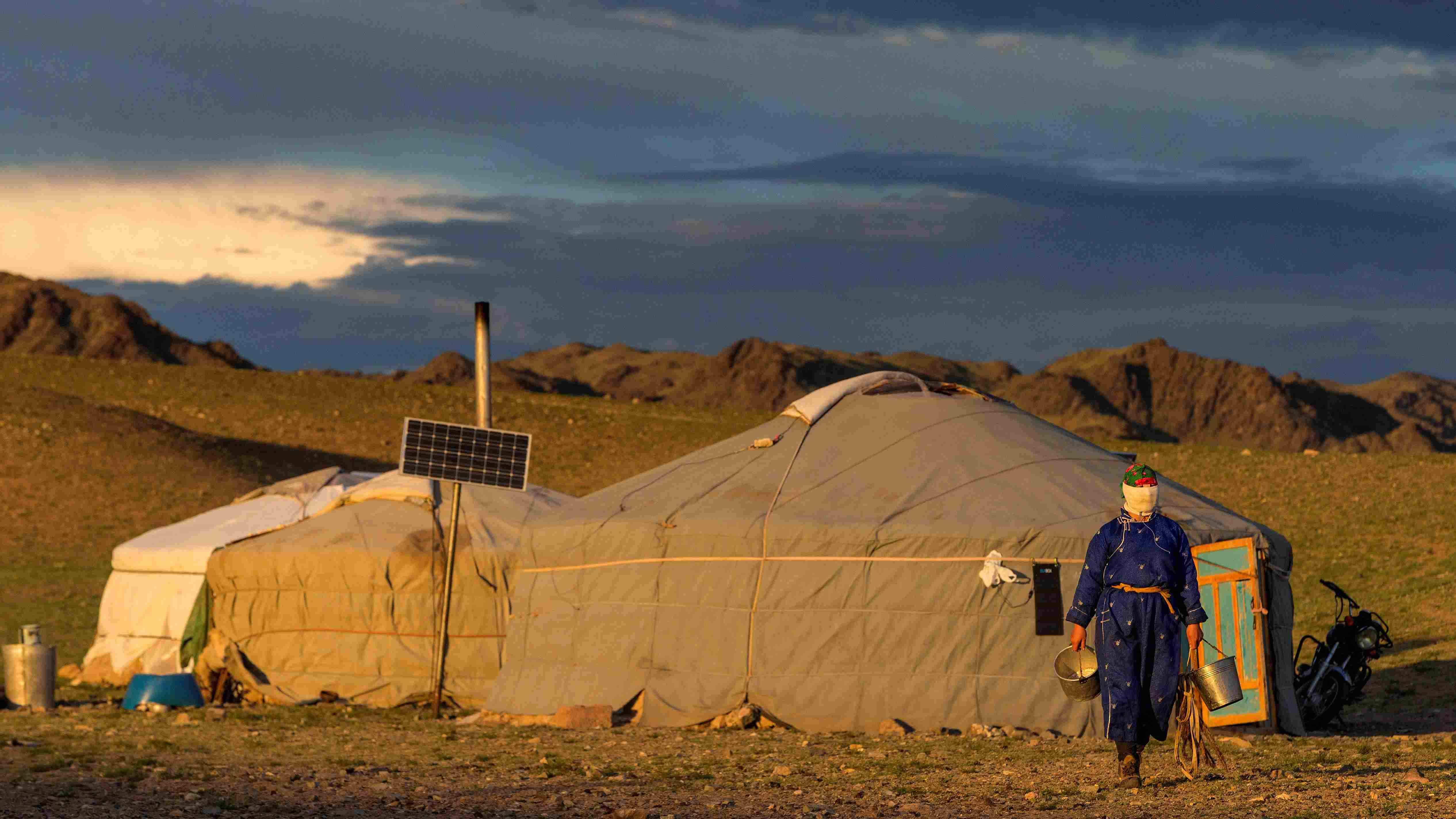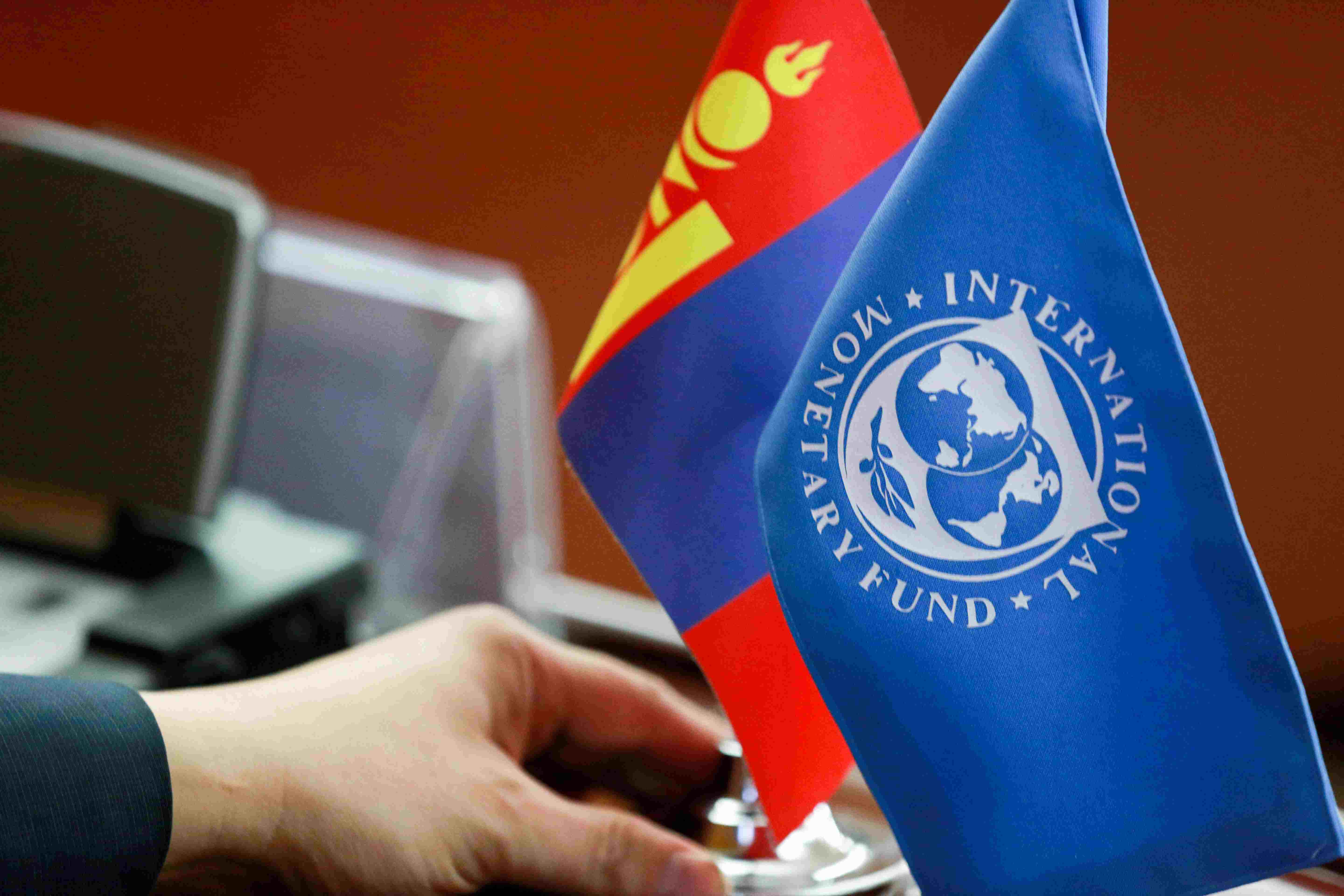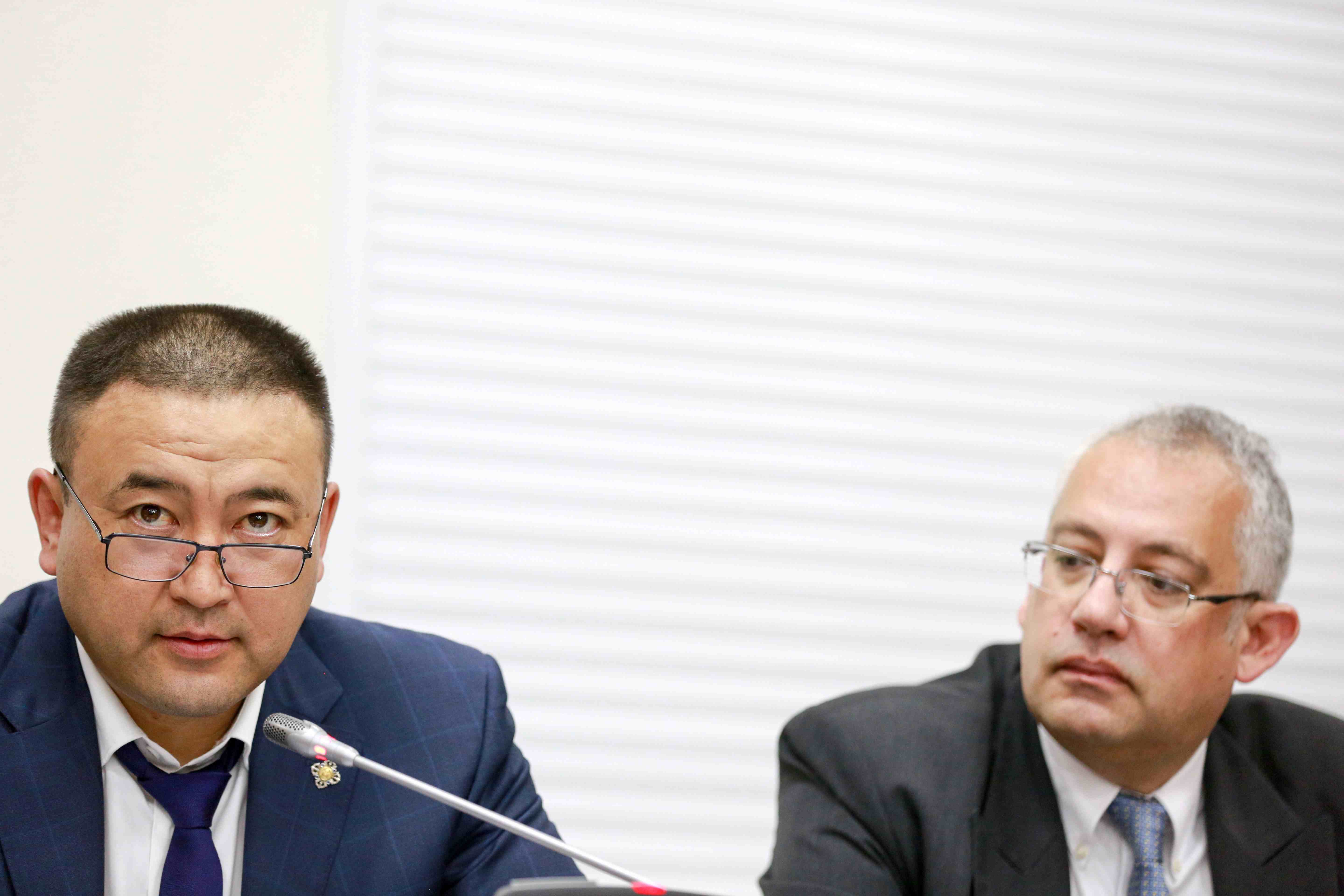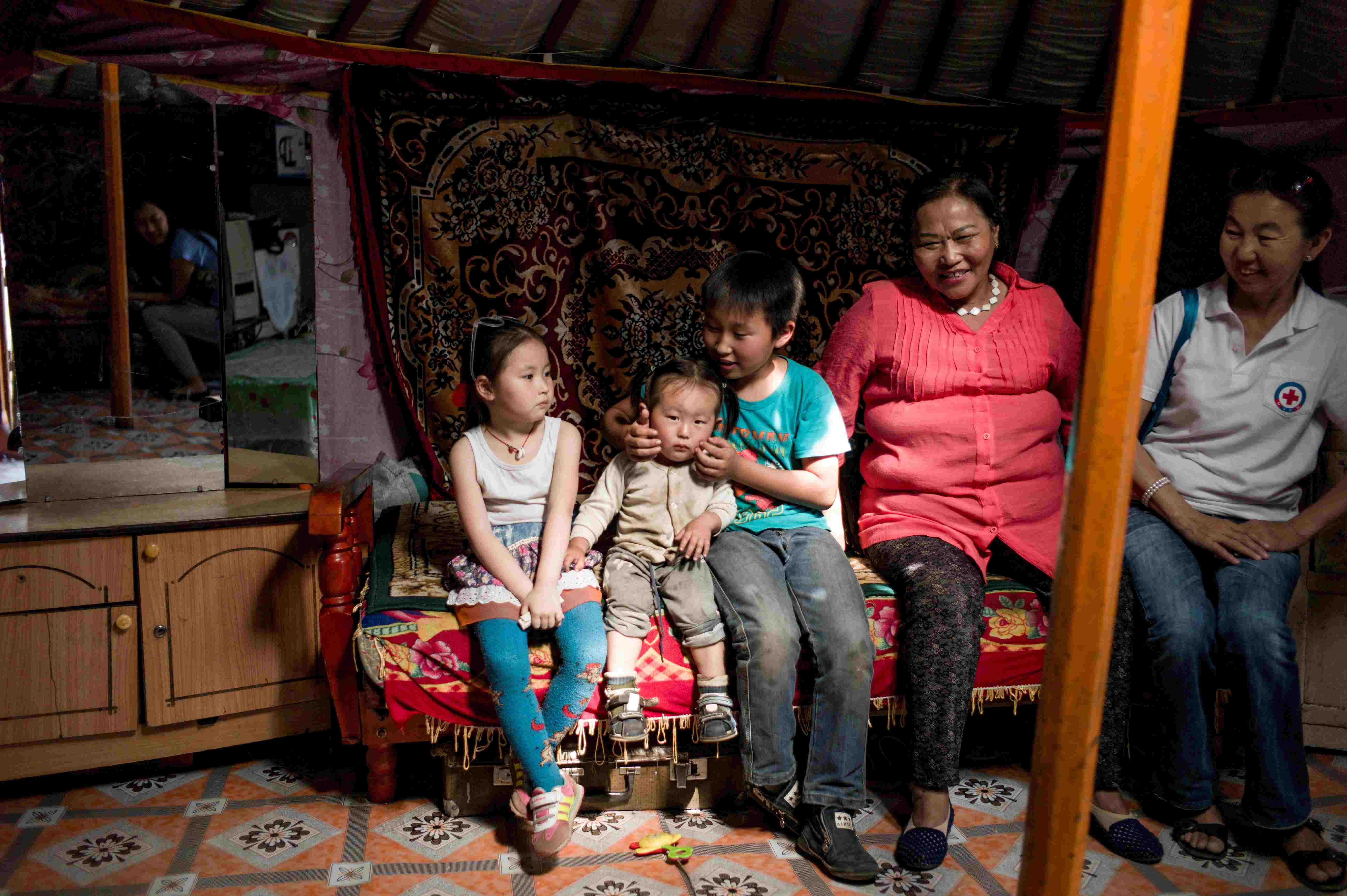
Business
17:40, 14-Sep-2017
IMF delays Mongolia bailout payment after government ousting
CGTN

The International Monetary Fund (IMF) will delay disbursing bailout funds to
Mongolia after the country's prime minister and cabinet were toppled in
a parliamentary no-confidence vote last week, the IMF said
on Thursday.
Cash-strapped and debt-ridden Mongolia was granted a 5.5 billion US dollar rescue package from the IMF and other partners in May after
clashes with investors, government overspending and declining commodity
export revenues tipped the country into an economic crisis last
year.
However, the Mongolian People's Party (MPP) government, which
negotiated the IMF deal, was ousted by parliament last week amid allegations
of corruption and incompetence, as well as a damaging July presidential
election defeat.

This picture taken on February 19, 2017 shows an official placing the flags of Mongolia (L) and the International Monetary Fund (R) before a briefing in Ulaanbaatar /AFP Photo
This picture taken on February 19, 2017 shows an official placing the flags of Mongolia (L) and the International Monetary Fund (R) before a briefing in Ulaanbaatar /AFP Photo
The IMF office in Mongolia confirmed that the scheduled first review of the bailout package would now be delayed
until a new administration is formed.
"Once a new
government is in place, we will engage with the authorities on further
discussions of economic prospects and policies, and how best to move forward
with the program," IMF resident representative Neil Saker said in an
email.

Neil Saker (R), the International Monetary Fund's resident representative for Mongolia, and Mongolia's Finance Minister Battogtokh Choijilsuren, attend a press conference about a financing package supporting Mongolia's economic reform program, in Ulaanbaatar on May 25, 2017. /AFP Photo
Neil Saker (R), the International Monetary Fund's resident representative for Mongolia, and Mongolia's Finance Minister Battogtokh Choijilsuren, attend a press conference about a financing package supporting Mongolia's economic reform program, in Ulaanbaatar on May 25, 2017. /AFP Photo
The IMF is providing Mongolia with three years of credit worth
about 434.3 million US dollars. The bailout package also includes soft loans from Japan
and South Korea and an extended currency swap agreement with the People's
Bank of China.
To secure the deal, Mongolia agreed to improve banking
and finance regulation and also pledged to cut spending, raise taxes and
postpone the statutory retirement age in a bid to balance its
books.
Former Prime Minister Jargaltulga Erdenebat and his cabinet were
appointed in 2016 on a promise to put Mongolia's struggling economy back on
track. Although growth has recovered in 2017 after a resurgence in coal
prices, Erdenebat failed in his efforts to revive crucial investment projects
like the cross-border railway to China.
A new prime minister is expected to be appointed by the MPP later
this month. The deadline is October 6, 30 days after last week's no-confidence
vote.
For over a decade, China has been Mongolia's largest trading partner. According to China's Ministry of Commerce (MoC), Sino-Mongolian trade amounted to 3.1 billion US dollars in the first half of this year, up 44.2 percent from a year ago.

This photo taken on June 24, 2017 shows a family resting in a yurt, a traditional Mongolian house, on the outskirt of Ulaanbaatar. /AFP Photo
This photo taken on June 24, 2017 shows a family resting in a yurt, a traditional Mongolian house, on the outskirt of Ulaanbaatar. /AFP Photo
In the same period, China's non-financial direct investment in Mongolia reached 4.1 billion US dollars, accounting for 30 percent of Mongolia's total foreign investment.
China mainly exports gas, diesel, food, machinery and equipment to Mongolia, and imports natural resources, fur and raw materials.
China and Mongolia will soon start conducting a joint feasibility study for the development of a free trade zone, an MoC official said in August, ahead of the Second China-Mongolia Expo, which is slated to take place in Hohhot, capital of China's Inner Mongolia autonomous region on September 26-30.
1164km
Source(s): Reuters
,China Daily

SITEMAP
Copyright © 2018 CGTN. Beijing ICP prepared NO.16065310-3
Copyright © 2018 CGTN. Beijing ICP prepared NO.16065310-3